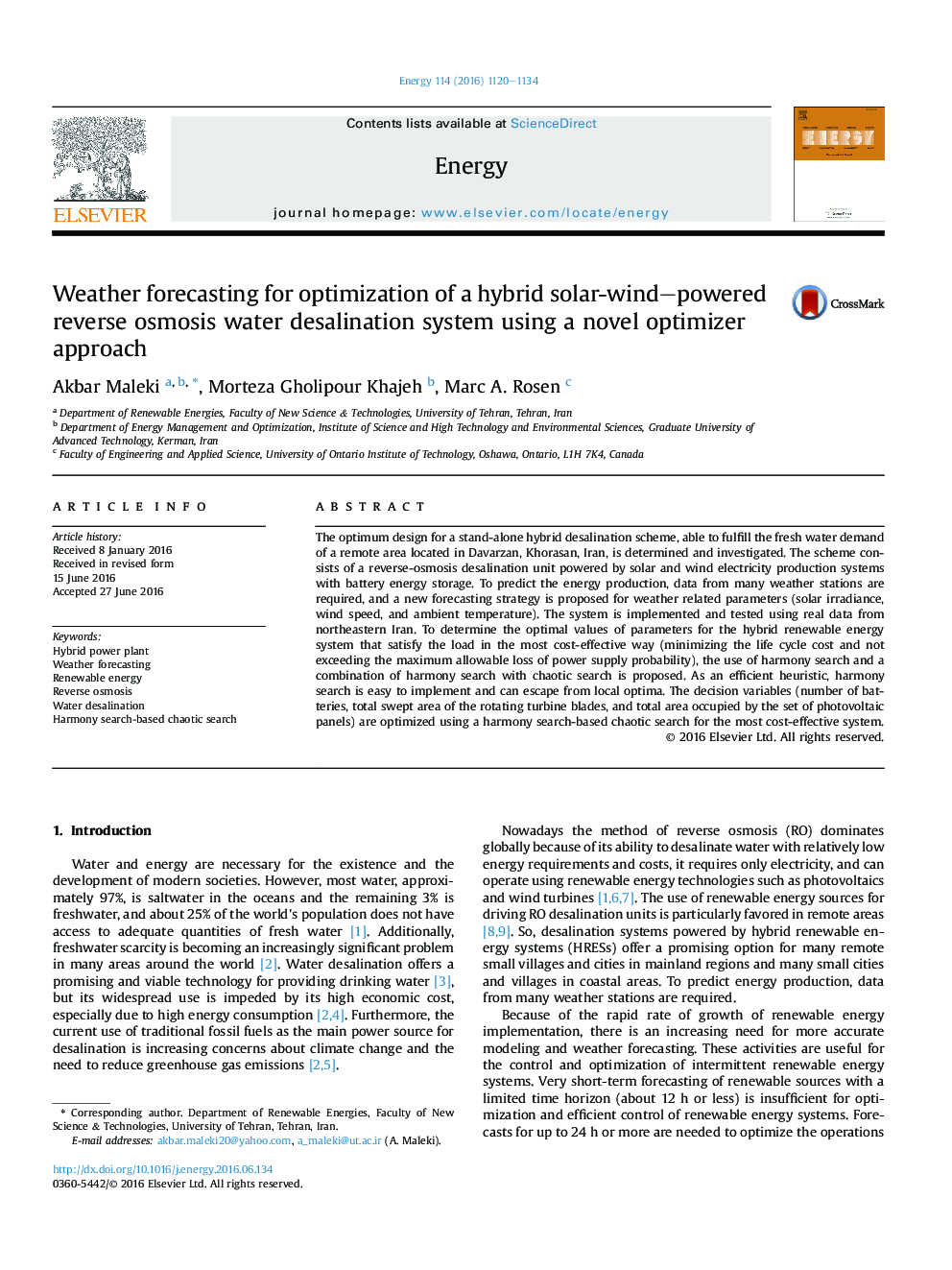| Article ID | Journal | Published Year | Pages | File Type |
|---|---|---|---|---|
| 8072913 | Energy | 2016 | 15 Pages |
Abstract
The optimum design for a stand-alone hybrid desalination scheme, able to fulfill the fresh water demand of a remote area located in Davarzan, Khorasan, Iran, is determined and investigated. The scheme consists of a reverse-osmosis desalination unit powered by solar and wind electricity production systems with battery energy storage. To predict the energy production, data from many weather stations are required, and a new forecasting strategy is proposed for weather related parameters (solar irradiance, wind speed, and ambient temperature). The system is implemented and tested using real data from northeastern Iran. To determine the optimal values of parameters for the hybrid renewable energy system that satisfy the load in the most cost-effective way (minimizing the life cycle cost and not exceeding the maximum allowable loss of power supply probability), the use of harmony search and a combination of harmony search with chaotic search is proposed. As an efficient heuristic, harmony search is easy to implement and can escape from local optima. The decision variables (number of batteries, total swept area of the rotating turbine blades, and total area occupied by the set of photovoltaic panels) are optimized using a harmony search-based chaotic search for the most cost-effective system.
Related Topics
Physical Sciences and Engineering
Energy
Energy (General)
Authors
Akbar Maleki, Morteza Gholipour Khajeh, Marc A. Rosen,
